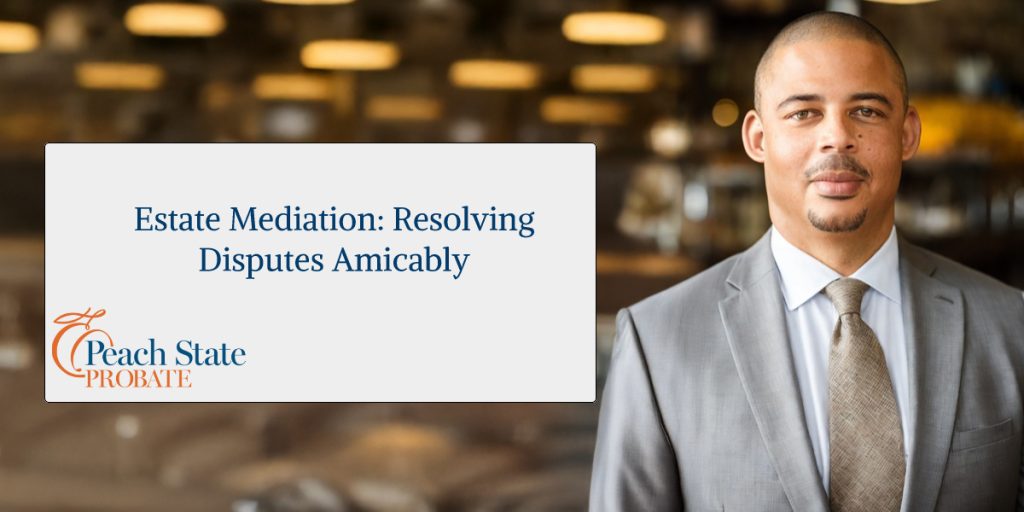Losing a loved one is never easy, and the challenges of handling an estate can feel overwhelming, especially when emotions are already running high. Estate Mediation provides a valuable path to resolving disputes among family members and beneficiaries, aiming to avoid the stress, expense, and divisiveness often associated with formal litigation. Whether disagreements arise over the interpretation of documents, division of assets, or the perceived fairness of decisions, Estate Mediation centers around open dialogue in a neutral, guided setting. In communities like Sandy Springs, GA, families benefit from mediation by finding mutually acceptable solutions that not only address legal questions, but also preserve relationships and honor the wishes of the deceased. Seeking a peaceful resolution is not just about property, but about respect, legacy, and moving forward together with understanding.
Understanding the Basics: What Estate Mediation Means
Estate Mediation is a collaborative process designed to help disputing parties in an estate reach agreement outside of court. By definition, mediation involves a neutral third party, called a mediator, who facilitates productive discussions and helps each side communicate their perspective. For example, siblings might disagree on how to interpret a parent’s will, or beneficiaries may argue over sentimental items not specifically listed. Rather than leaving decisions to a judge, Estate Mediation allows all parties to participate actively in crafting solutions. Legal terms, such as “probate” or “executor,” simply refer to the official process of distributing someone’s property and the person in charge of that process. Mediation provides a flexible, confidential environment, reducing the risk of prolonged disputes and helping families preserve both assets and relationships.
The Importance of Resolving Estate Matters Through Mediation
Estate matters have lasting personal and financial impacts that can ripple through generations. When disagreements over inheritance or property are not resolved promptly and fairly, families may experience long-term emotional strain or resentment. Estate Mediation directly addresses these issues by providing a structured, non-adversarial approach to conflict. This method is especially important because it can prevent legal fees and court battles from significantly reducing the value of the estate.
Furthermore, mediation can help parties maintain or even rebuild trust, which is often damaged in contentious probate cases. By giving everyone a chance to be heard, the process creates buy-in for the resolution reached. For example, instead of siblings fighting over antique jewelry through the courts, Estate Mediation can help them create a fair plan for dividing family heirlooms and establish ongoing lines of communication. In Sandy Springs, GA, where family ties and local traditions matter deeply, this approach keeps the focus on healing and legacy more than on conflict and division.
- Family members cannot agree on how to split sentimental possessions; without mediation, the disagreement escalates to a lawsuit, causing irreparable family rifts.
- A will is challenged by one sibling, and the estate gets tied up in court for years, draining resources and creating hundreds of hours of stress for all involved.
- The executor of an estate makes a unilateral decision, resulting in another beneficiary feeling ignored and filing a costly legal challenge, slowing the process for everyone.
How the Estate Mediation Process Unfolds in Sandy Springs, GA
- Step 1: All parties agree to participate in mediation and retain a neutral mediator familiar with estate law.
- Step 2: Each side presents their perspectives and concerns, either in joint discussions or private sessions, guided by the mediator to ensure fairness.
- Step 3: The mediator helps shape a compromise, working towards a legally binding agreement that respects everyone’s viewpoints and fulfills legal requirements.
Effective Strategies for Navigating Estate Mediation
Answers to Common Estate Mediation Questions in Sandy Springs
How Peach State Probate Law Group Assists Clients Every Step of the Way
Peach State Probate Law Group understands the sensitive nature of estate disputes and brings a wealth of knowledge on Georgia estate law to each case. With years of experience guiding clients through mediation, the firm is dedicated to helping families find fair, amicable solutions without the uncertainty and hardship that courtroom battles can bring. From the first consultation, clients receive personalized advice, strategic representation, and access to skilled mediators who understand both the legal and emotional aspects of estate conflicts. Because every family situation is unique, Peach State Probate Law Group tailors its approach, prioritizing communication and transparency. Their professional guidance brings clients peace of mind, knowing their loved one’s wishes are respected and that relationships have the best chance of healing and moving forward.




